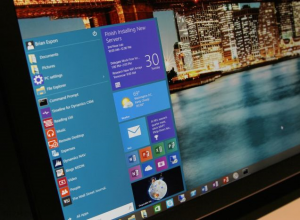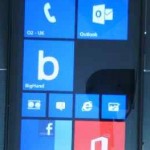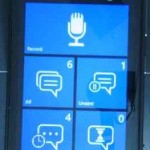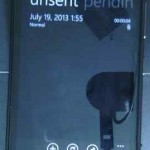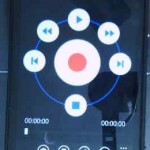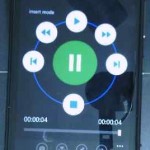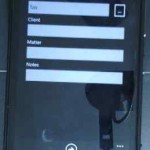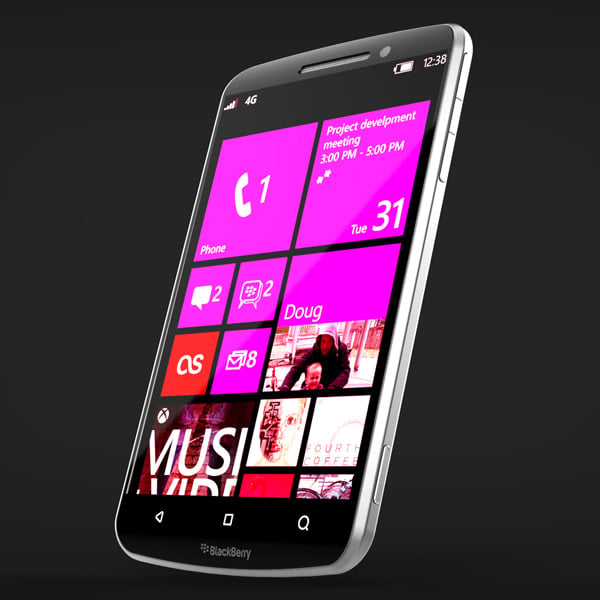This week I have managed to get the latest release of Windows Phone 7 on my HTC (codename Mango) and I have to say that yet again I’m impressed with the work Microsoft have done with this phone.
Below are some of the highlights in the basic release i.e. I’m not going to go into the Apps, just those features that are there as standard in the phone. After all every smartphone has plenty of downloadable apps and most of what you have on iPhone and Android is now (or is in the pipeline) for Windows Phone (so facebook, Sky News, Twitter, Foursquare are all there, Skype and Spotify are on there way etc)
I’m also trying to pick core phone features that may interest a lawyer (although they are useful functions for anyone really), but it means I’m not looking at Music, Video etc.
People hub
The key part of Windows Phone is how Microsoft have designed it from the ground up as a phone interface. So a lot of the design is around People, after all interacting with people is the primary function of a phone right? So they built the People hub, from the earliest versions of Windows Phone this held all your contacts and from each person you could interact with these contacts in all the ways you’d expect on a smartphone (email, text, phone etc). These contacts can be pulled from mulitple locations Exchange, Windows Live, Google, facebook etc and then deduplicated i.e. you can link together records for the same person, giving one contact record on the phone rather than one for facebook, one for linkedin etc. This data is kept in sync with the source “over the air”.
In Mango the set of sources got bigger. You can now link in Twitter, LinkedIn (excellent for lawyers, LinkedIn can really be your CRM system!) and from multiple Exchange accounts. So you get all your contacts collated in one place, and for a lawyer if the client updates his/her record in LinkedIn, the update is automatically made to the lawyers phone contact. As well as keeping information from these sources up to date you can also see real time information from contacts in the form of status updates from facebook, twitter, linkedin etc
What about the fact that you may therefore have hundreds of contacts pulled into your phone? Well you can then group contacts in the Mango release, so for example create a “Family” group. Then as well as easily finding your family you can also interact with the whole group. See all the collated updates for the group, text all the group etc. You can also filter your contacts by the source.
With all this being built into the phone (rather than multiple additional apps) everything is where you’d expect it to be. Wherever there is a contact you can interact with it as you’d expect.
Office
As you’d expect from a Microsoft product, Office has been available in Windows Phone 7 from the off. But the integration has now improved in Mango. Now Word, Excel, OneNote and PowerPoint can all integrate with SkyDrive (Microsoft’s online storage), Office365 or your firms SharePoint environment. There are also a number of additions for Exchange users (Out of Office setting, search mail not on your phone but on the server).
Bing
Now Bing. Pre-Mango this was just a web search that was location aware. Now there’s “Vision” search where you can scan QR codes and translate text, basically point the camera at a QR code and it jumps to the relevant web page or point at a sign for example, it scans the text and translates it. Also is a Shazam like music search, not sure of a use for a lawyer other than say to cheat in the pub quiz! There’s also “Scout” which with a single press will provide “eat & drink” and “see & do” information for your location, useful for when room service again is too much to bear!
As well as using the camera to scan signs you can utilise for the obvious as well and with Mango you can share directly to twitter without an additional app (although this posts a link to a public skydrive area rather than use traditional services like twitpic or yfrog, a shame in my opinion), this joins the ability to share to facebook and the ability to automatically upload all photos taken straight to SkyDrive (no more needing to remember to sync or manually copy your photos off your phone).
Email/Calendar
Finally a few additions to the core parts of any smartphone. Email and Calendar.
In email you’ve three great additions:
Consolidated inbox – allowing you to merge multiple mailboxes (Exchange, Hotmail and Google for example) into one Mailbox on the phone. And it’s not an all or nothing, you could merge 2 personal accounts and keep your firm account separate for example.
Exchange – as you’d expect you can easily hook Windows Phone to Microsoft’s Exchange mail servers, but now with Mango you can sync to more than one.
Conversation View – I love this in Outlook 2010 and now it’s available on Windows Phone thanks to Mango.
In the calendar you can add multiple calendars into one phone calendar. Colour coding appointments so you can see at a glance which calendar they’re from. Previously missing Tasks from Exchange are now available in Mango.
And all this synchronisation is over the air, there’s no need to hook your phone up to a computer to do any of this with Windows Phone (the same goes for pretty much everything, including over WiFi sync with music from your music library).
Finally you have the addition of instant messaging, not a separate app but fully integrated into the messaging (text) area. Keeping the theme in Windows Phone of integrating features in all the right places. So if you’re chatting with someone on facebook and they log off, when they continue talking via text you can still see their facebook responses in the same conversation thread. You can fire off an instant message from your contacts (either Microsoft Live or facebook).
Internet Explorer 9
With Mango comes Internet Explorer 9 giving full support of HTML5, CSS3, SV, XHTML, DOM apparently. Plus a faster JavaScript engine and hardware-accelerated graphics that use the phone’s built-in GPU when rendering HTML5 animation or video.
Summary
This is not the Windows Mobile of old. If your experience of Windows Phone was from a couple of years or more ago in it’s Windows Mobile 6, 5 or even 2003 guise then you’ll be very surprised. Windows Phone 7 has been built from scratch and bears absolutely no DNA of that old system.
It’s hard to compare Windows Phone over Android and iPhone, they all do some things better than each other. It’s true iPhone and Android have more apps available (but who’s going to use more than the 30,000 apps currently available for Windows Phone, never mind the 400,000 or whatever that the iPhone now has!). But the key differentiators for Windows Phone is it’s design from the off, the integration of social networking, email and text into the core phone OS.
I’m a big fan of Windows Phone 7. But I hope neither Google, Apple or Microsoft “win” this war, keep the competition of three heavyweight in the mix and the customer will benefit from constant innovation!
Finally if all you heard about Windows Phone was that cut ‘n’ paste wasn’t available, well that was provided some time ago with the previous release (codename NoDo)! And for those in the UK of a certain age who recognise the inspiration for the title of this post, here you go: You’ve been tango’d (YouTube)!

